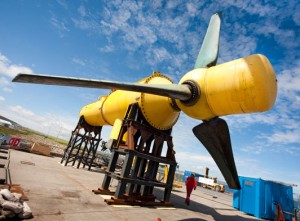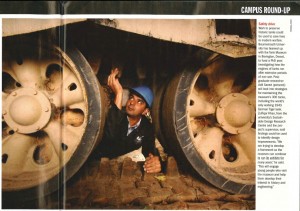
Depleting non-renewable resources and limited alternative (heat pumps and solar photovoltaic), renewable (tidal, wind, solar) options of energy generation are posing challenging questions. In addition sustained energy supply and security are important factors to consider.
 “European Union ministers meeting in Luxembourg have signalled support for draft European Commission plans for an energy efficiency law impacting directly on utilities” http://www.utilityweek.co.uk/news/news.asp . Among other considerations it is noted that “Reinvigorated efforts are necessary in order to reach the 20% EU energy saving objective by 2020.” This is an optimistic, challenging but achievable target. However these savings could easily be topped up with available options and technologies available to us without painful cuts to energy consumption in our daily lives. This should not necessarily mean that energy inlets are to be reduced or energy flow through these inlets is reduced. As both of these are directly related to life standard and output. For example we will have to choose either have a TV or laptop and/or have a smaller TV at domestic level. Or reduced manufacturing lines in the industry or reduced number of industry.
“European Union ministers meeting in Luxembourg have signalled support for draft European Commission plans for an energy efficiency law impacting directly on utilities” http://www.utilityweek.co.uk/news/news.asp . Among other considerations it is noted that “Reinvigorated efforts are necessary in order to reach the 20% EU energy saving objective by 2020.” This is an optimistic, challenging but achievable target. However these savings could easily be topped up with available options and technologies available to us without painful cuts to energy consumption in our daily lives. This should not necessarily mean that energy inlets are to be reduced or energy flow through these inlets is reduced. As both of these are directly related to life standard and output. For example we will have to choose either have a TV or laptop and/or have a smaller TV at domestic level. Or reduced manufacturing lines in the industry or reduced number of industry.
One third of the available energy is dissipated through frictional heat in mechanical interacting machines for example motors, pumps, compressors, internal combustion engines, steam/tidal/wind turbines and manufacturing tools etc. A significant part of this energy is recoverable. This is achieved through mathematically adjusting the surface profile of the interacting surface through which energy is transferred. This key aspect is part of the science and engineering of friction, wear and lubrication; Tribology.
Colleagues in the Sustainable Design Research Centre have expertise and resources in this key and strategically important area of activity and are also actively engaged in the BU initiative within Green Knowledge Economy. If you are interested in this area or would like to find out more contact Professor Mark Hadfield / Dr Zulfiqar Khan. For details please see the SDRC webpage.
 Congratulations to BU PhD student Adil Saeed from DEC’s Sustainable Design Research Centre! Adil’s research featured in the Times Higher Education today – pg 15 of the printed publication as part of the Campus Round-up section.
Congratulations to BU PhD student Adil Saeed from DEC’s Sustainable Design Research Centre! Adil’s research featured in the Times Higher Education today – pg 15 of the printed publication as part of the Campus Round-up section. “European Union ministers meeting in Luxembourg have signalled support for draft European Commission plans for an energy efficiency law impacting directly on utilities”
“European Union ministers meeting in Luxembourg have signalled support for draft European Commission plans for an energy efficiency law impacting directly on utilities” 










 SPROUT: From Sustainable Research to Sustainable Research Lives
SPROUT: From Sustainable Research to Sustainable Research Lives BRIAN upgrade and new look
BRIAN upgrade and new look Seeing the fruits of your labour in Bangladesh
Seeing the fruits of your labour in Bangladesh Exploring Embodied Research: Body Map Storytelling Workshop & Research Seminar
Exploring Embodied Research: Body Map Storytelling Workshop & Research Seminar Marking a Milestone: The Swash Channel Wreck Book Launch
Marking a Milestone: The Swash Channel Wreck Book Launch ECR Funding Open Call: Research Culture & Community Grant – Application Deadline Friday 12 December
ECR Funding Open Call: Research Culture & Community Grant – Application Deadline Friday 12 December MSCA Postdoctoral Fellowships 2025 Call
MSCA Postdoctoral Fellowships 2025 Call ERC Advanced Grant 2025 Webinar
ERC Advanced Grant 2025 Webinar Update on UKRO services
Update on UKRO services European research project exploring use of ‘virtual twins’ to better manage metabolic associated fatty liver disease
European research project exploring use of ‘virtual twins’ to better manage metabolic associated fatty liver disease